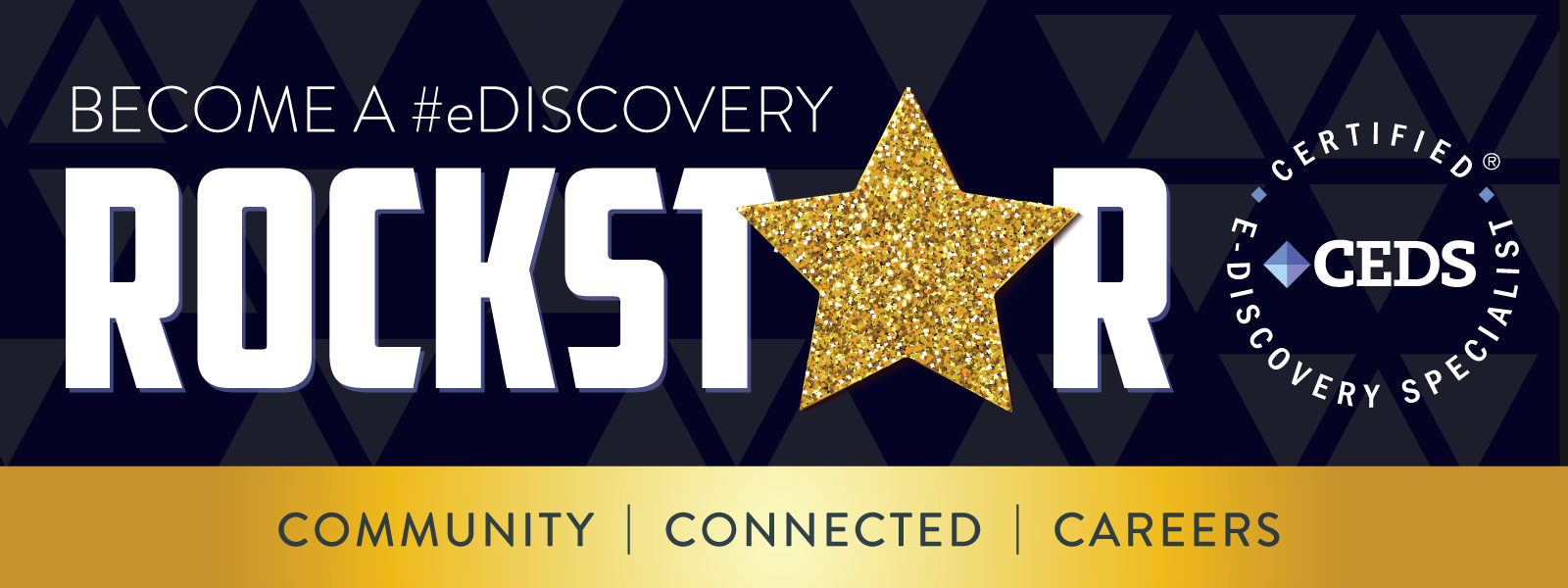This week, I had the pleasure of speaking with a manager of practice support and a paralegal, both who obtained their CEDS for different reasons. Fascinating discussions ensued so let’s dive in.
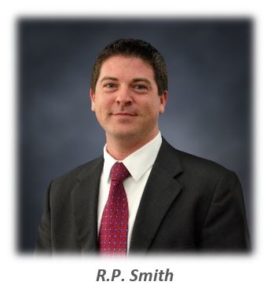 I first spoke with R.P. Smith, the Manager of Practice Support at Jones Walker LLP in New Orleans, LA. With over 15 years of experience in the legal industry, he now successfully manages a team responsible for the development and implementation of cost-effective technology solutions for a myriad of practice groups across 19 offices nationwide. R.P. obtained his CEDS in March 2012.
I first spoke with R.P. Smith, the Manager of Practice Support at Jones Walker LLP in New Orleans, LA. With over 15 years of experience in the legal industry, he now successfully manages a team responsible for the development and implementation of cost-effective technology solutions for a myriad of practice groups across 19 offices nationwide. R.P. obtained his CEDS in March 2012.
R.P. came from humble beginnings starting out as an office assistant at Watkins and Eager in Mississippi. He then then moved on to a paralegal position at Greenberg Traurig after two and a half years. Next on the rung of the ladder of success was a stint as Practice Technology Support Specialist at Carlton Fields, P.A. where he stayed for over three years. He finally landed his dream job as Manager of Practice Support/eDiscovery at Jones Walker in New Orleans and has been with them since November 2010.
In 2012, R.P. was invited to be part of the Advisory Board at ACEDS for the second testing and helped evaluate the entire procedure. Was the CEDS exam current, relevant and beneficial? Did he learn anything while there? These were challenges he faced in the evaluation process and the answer was a definitive yes. R.P.’s also had his eye toward making sure the CEDS exam also included everything related to best practices in eDiscovery. He was one of the second batch of people to take the test and in 2012, he got his CEDS certification.
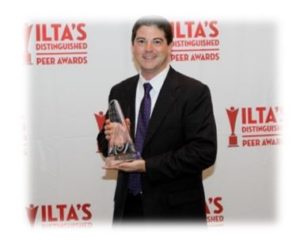 Prior to getting his CEDS, when different projects come up in his job, they could be quite scattered and there wasn’t really a process in place. Post CEDS, he is now fully prepared to address each challenge with a wealth of knowledge and an immediate action plan to put into place. Oh, and by the way, if you need someone to talk to about collection of data, R.P. is the man!
Prior to getting his CEDS, when different projects come up in his job, they could be quite scattered and there wasn’t really a process in place. Post CEDS, he is now fully prepared to address each challenge with a wealth of knowledge and an immediate action plan to put into place. Oh, and by the way, if you need someone to talk to about collection of data, R.P. is the man!
As a side, R.P. received the Distinguished Peer Award: Young Professional of the Year from ILTA in 2013.
I then spoke with Sheila Grela with the firm of Procopio, Cory, Hargreaves & Savitch LLP in San Diego working as a litigation paralegal. Sheila has both a Certified eDiscovery specialist (CEDS) and an Advanced 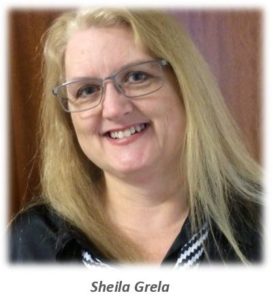 Certified Paralegal (ACP®) as well as an extensive legal background spanning over two decades. Sheila is experienced in all aspects of litigation. She has assisted attorneys on matters ranging from the analysis of value engineering change orders on government contracts, to multi-million-dollar contract litigation, as well as class action suits and construction litigation matters. Sheila’s computer expertise includes Microsoft® Office applications, Relativity®, Ipro Eclipse®, Concordance®, and TextMap®.
Certified Paralegal (ACP®) as well as an extensive legal background spanning over two decades. Sheila is experienced in all aspects of litigation. She has assisted attorneys on matters ranging from the analysis of value engineering change orders on government contracts, to multi-million-dollar contract litigation, as well as class action suits and construction litigation matters. Sheila’s computer expertise includes Microsoft® Office applications, Relativity®, Ipro Eclipse®, Concordance®, and TextMap®.
She received her paralegal certificate with honors from the ABA-approved USD Paralegal program and earned a Contract Management Certificate from San Diego State University. Her document management skills have been furthered through the Litigation Technology Management Certificate program, offered through the UC San Diego | Extension Studies program. She is an active member of the Association of Certified eDiscovery Specialists, San Diego Paralegal Association, National Association of Legal Assistants, San Diego Legal Secretaries Association, and the San Diego Chapter of Women in eDiscovery, for which she previously served as the Membership Director. Whoa! Lots to cover there. Impressive, eh?
I asked her to share her thoughts on the certification training, exam and how it has benefitted her and ACEDS community as a whole. She indicated that she first heard about ACEDS from Meg Marksberry, the instructor of an eDiscovery course through UC San Diego Extension. Meg discussed education during that course including her goal of obtaining a CEDS. It was the beginning of an important change in Sheila’s career.
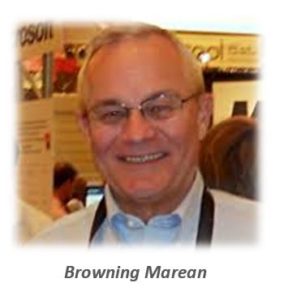 It was at a 2013 San Diego eDiscovery Retreat when Sheila had her “Aha” moment. She realized the importance of eDiscovery and how it related to her role as a litigation paralegal. She was listening to several key members in the San Diego eDiscovery community including Browning Marean (RIP) and Justine Phillips with Sheppard Mullen and thought to herself that if she wanted to properly serve both the attorneys and clients, it was critical that she needed to understand the concepts involved in eDiscovery. It became clear that she had to learn to correctly apply the knowledge, skill and techniques involved in both the procedural and technical aspects of eDiscovery – and quick!
It was at a 2013 San Diego eDiscovery Retreat when Sheila had her “Aha” moment. She realized the importance of eDiscovery and how it related to her role as a litigation paralegal. She was listening to several key members in the San Diego eDiscovery community including Browning Marean (RIP) and Justine Phillips with Sheppard Mullen and thought to herself that if she wanted to properly serve both the attorneys and clients, it was critical that she needed to understand the concepts involved in eDiscovery. It became clear that she had to learn to correctly apply the knowledge, skill and techniques involved in both the procedural and technical aspects of eDiscovery – and quick!
Many ACEDS members encouraged her to study for the CEDS examination. In particular, Andy Alcindor, CEDS of Bernstein Litowitz Berger & Grossmann LLP, took the time to explain some of the technical concepts that she needed help in understanding and Sheila indicated that he was a great ACEDS mentor. She made me laugh when she told me that she used to walk around with both the CEDS handbook and the Sedona Glossary and wore out more than 15 highlighters in the study process. The icing on the “study” cake was the ACEDS eDiscovery Essentials online course and tests.
When asked about advice for others who may be contemplating taking the exam, Sheila was adamant that it is a necessity for any litigation  paralegal serious about their professionalism and the future of their job. She listed the five basic steps for the entire process:
paralegal serious about their professionalism and the future of their job. She listed the five basic steps for the entire process:
- Sign-up as an ACEDS member as well as their preparatory course.
- Speak to someone who has taken the exam over the phone.
- Find a mentor to help oversee your course of study.
- Sign-up for the ACEDS eDiscovery Essential course and take the tests for each module.
- Take the CEDS exam.
As Sheila stated, just follow these simple steps and you’ll be on your way to the top of the salary range, the top of the list of job applicants for that dream position and R-E-S-P-E-C-T from the litigation partners as well. Thank you for your enthusiasm and time, Sheila.
Please share this blog as these great CEDS members are ROCK STARS!
Next week we’ll be delving into that SCOTUS ruling about police needing a pesky little search warrant to track your cell phone location, Carpenter v. United States, decided June 22, 2018. See you then and have a fabulous and productive week. Happy 4th of July!
